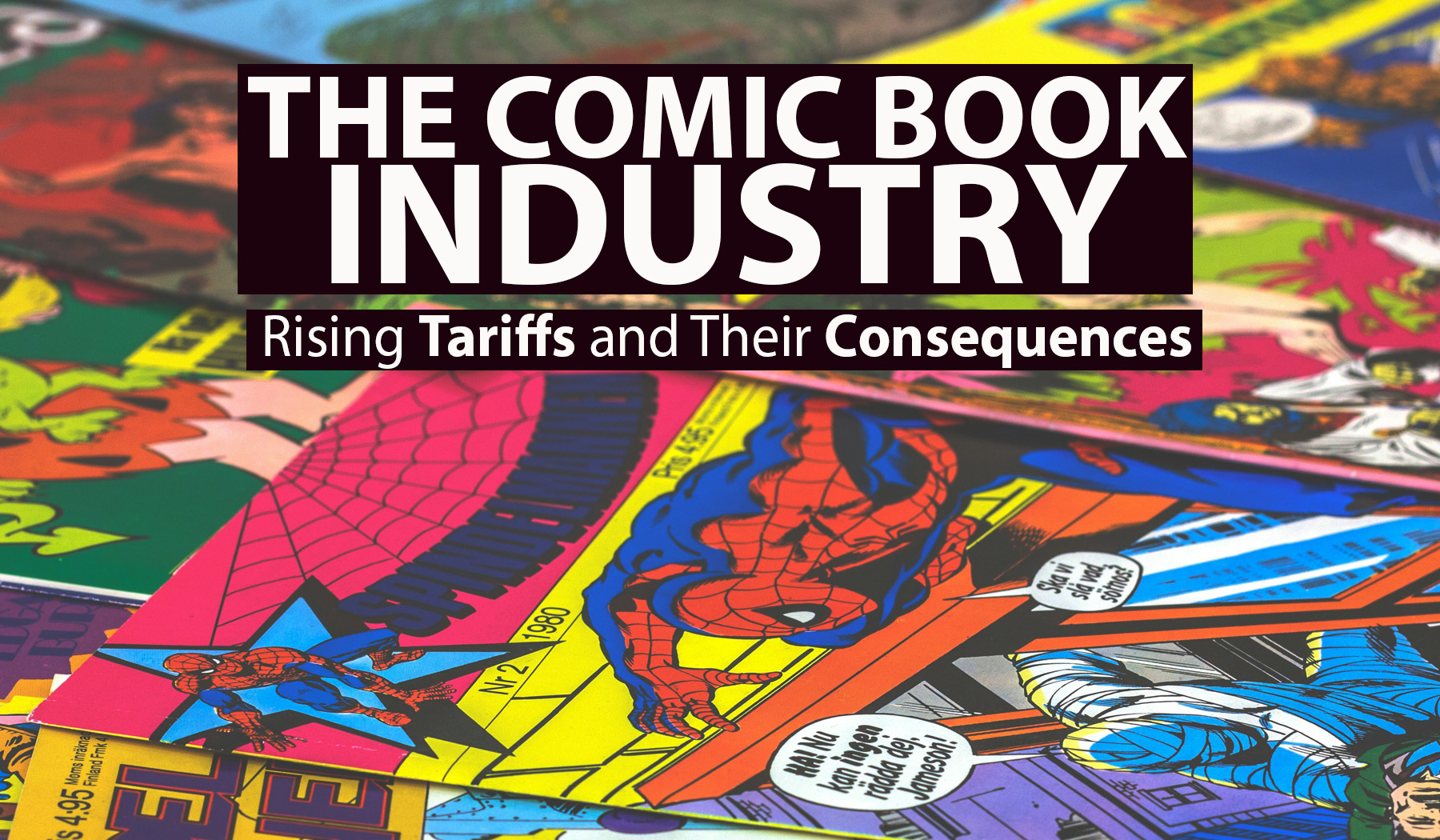The trade wars ignited over the weekend are sending ripples through industries worldwide, and one of the sectors feeling the heat is the comic book industry.
With President Trump’s decision to impose a 25% tariff on goods coming from Canada and Mexico, and an additional 10% tariff on Chinese imports, the comic book world is bracing for the effects on production and pricing.
This move, which follows a series of inflammatory remarks about Canada’s place in the world, has triggered retaliation. Canada, enraged by these insults, has retaliated with a 25% tariff on U.S. goods, and suddenly, the U.S. comic book market is facing an uncertain future.
The new tariff will make it more expensive for publishers to get their products across the border, and those extra costs will inevitably trickle down to the consumer.
How Tariffs Will Affect Comic Book Prices
The total amount paid in tariffs is based on the customs value when an item is imported. This includes not only the cost of materials and manufacturing but also shipping and insurance.
To break it down using a simple example:
- Under current law, a book worth $1.00, with a tariff rate of 7.5%, would result in a tariff of 7.5 cents. So, the cost of importing the book would increase to $1.075.
- If the tariff rate were raised to 100%, the cost would double. A $1 book would now cost $2 after the tariff is applied, with an additional $1 in tariffs.
This stark increase in cost means that comic book publishers would likely face significant price hikes. And with the direct market already in turmoil due to the ongoing Diamond Comics bankruptcy, many publishers are facing an uphill battle.
Indie Publishers and Overseas Printing
The 25% tariff could have an especially severe impact on this sector. However, the effects are not limited to indie comics.
Periodical comics, many of which are printed in Canada, will also be affected. Even those printed in the U.S. often rely on Canadian paper for production. This widespread reliance on Canadian production means the price of periodical comics is likely to increase as well.
This price hike will likely extend beyond the world of comics. If the tariffs affect goods like food, energy, and other essentials, consumers may be forced to make tough decisions about their spending. Comics, like other non-essential goods, could be among the first items to be cut from budgets as a result.
The Changing Landscape of the Comic Book Industry
The comic book industry, already grappling with the fallout from Diamond’s bankruptcy, is now facing a new layer of anxiety.
Tariffs on imports could fundamentally alter the economics of production and pricing, and this uncertainty adds another layer of complexity to an already volatile market.
The timing couldn’t be worse. The industry had already been reeling from the bankruptcy of Diamond, which distributes comic books to retailers.
Now, with tariffs looming on the horizon, publishers and consumers alike are bracing for what could be a significant rise in prices and a shift in the way comics are distributed.
Looking Ahead: What’s Next for the Comic Book Market?
As the tariffs are set to go into effect soon, the impact on comic book prices remains unclear. However, one thing is certain: the comic book industry is facing unprecedented challenges. The direct market, as well as the broader book publishing landscape, are on the brink of major changes.
In these uncertain times, one thing is for sure: the comic book industry will need to adapt. Publishers, distributors, and retailers will need to find new ways to navigate the economic challenges posed by rising tariffs.
Whether through innovative pricing models, changes in production methods, or shifts in distribution, the next few months will be critical in shaping the future of the industry.
As we continue to monitor these developments, one thing is clear: the impact of trade wars on comics could mark the beginning of a new era for the comic book industry—one that could drastically change the way comics are created, produced, and sold.





